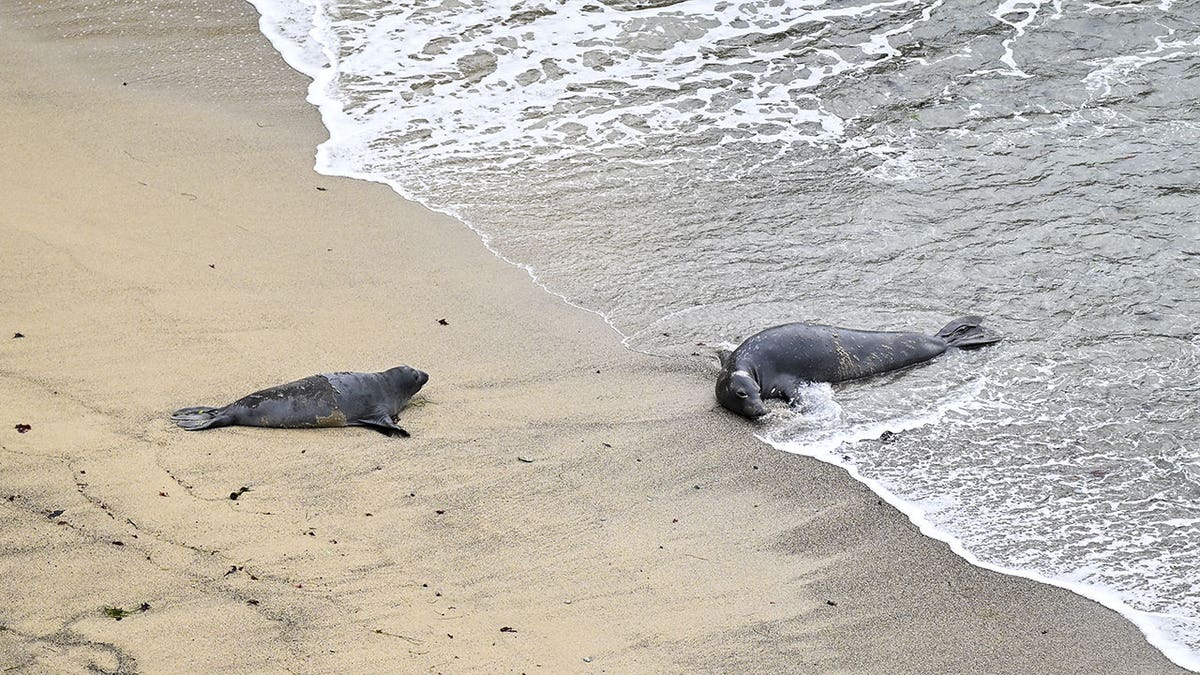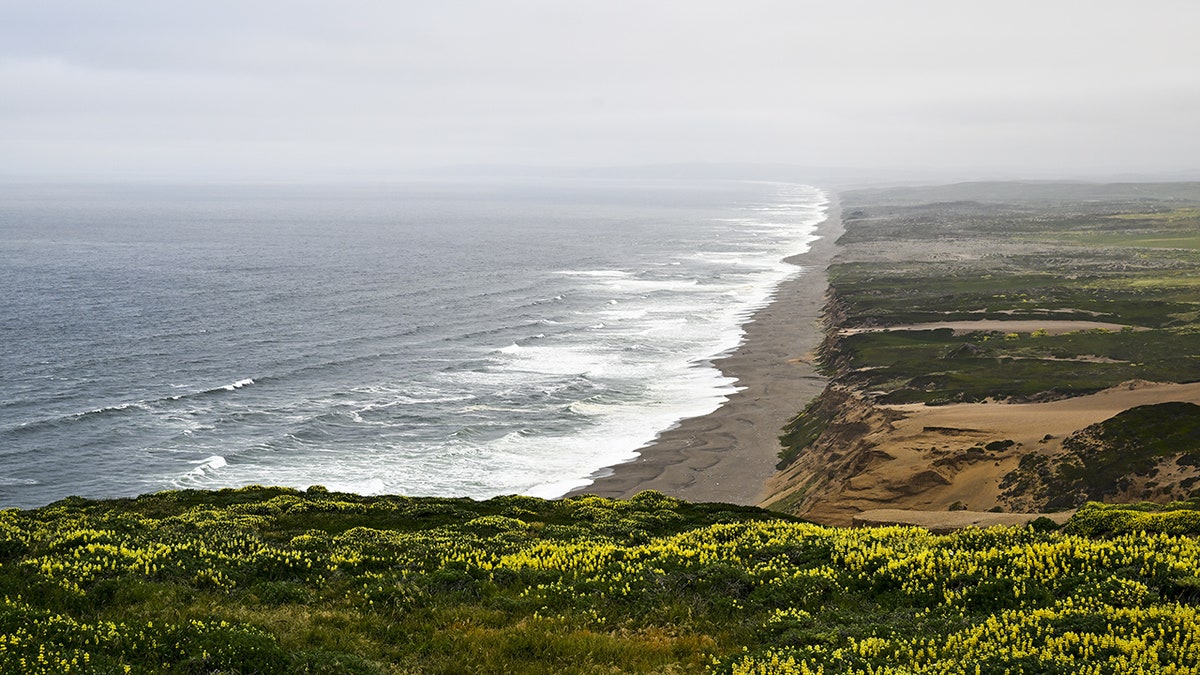Seals soak up the California sun: See the video
A group of seals were seen sunbathing in Humboldt County, California. The seals were soaking up the sun at Calm Beach during what the National Weather Service warned was a day to practice heat safety.
Scientists have cracked the case of scores of decapitated seals found on northern California beaches since 2016.
Noyo Center for Marine Science’s Sarah Grimes investigates marine mammal deaths, and told The Mercury News she suspected a responsible culprit, but needed proof.
“It was so gruesome,” Grimes told the Bay Area newspaper. “I was like marine mammal CSI, seeing all the dead pups with their heads torn off, and I’m like, ‘What the heck did that?’”
The headless bodies were found in MacKerricher State Park, where a student at University of California Santa Cruz caught the guilty party in the act.
CALIFORNIA DETECTIVES IDENTIFY REMAINS IN 1971 SOUTH LAKE TAHOE MISSING PERSON COLD CASE
Harbor seals seen on Point Reyes National Seashore in 2015. (National Park Service)
“We set up camera traps and got one really solid video of a coyote dragging a harbor seal pup and beheading it,” Ph.D. student Frankie Gerraty said. “We are pretty confident there has been predation at four sites along the Northern California coast.”
Researchers are not yet sharing the video while they continue trying to understand “the seemingly new predator-prey relationship,” the Los Angeles Times reports.
JUVENILE SPERM WHALE ‘IN POOR HEALTH’ EUTHANIZED AFTER STRANDING ON NORTH CAROLINA BEACH

Elephant seals lay on a beach near the Point Reyes National Seashore of Inverness in California on May 31, 2023. (Tayfun Coskun/Anadolu Agency via Getty Images)
Coyotes are appearing more often in the area after being poisoned and hunted by farmers and ranchers for decades.
“This really is nature’s balance,” Grimes told the LA Times. “The coyote is not a villain. It’s part of the ecosystem that has been missing for some years.”
Scientists are still working to understand why coyotes are only going for the seals’ heads, leaving their bodies behind, but believe it could have to do with the nutrition content of seal brains compared to other body parts.

Point Reyes National Seashore in Inverness, California, on May 31, 2023. (Tayfun Coskun/Anadolu Agency via Getty Images)
CLICK HERE TO GET THE FOX NEWS APP
Annual closures are currently in place at Point Reyes National Seashore until March 31, 2024, to protect elephant seal pups from disturbance during pupping season, the park’s website says.
The seals found decapitated by coyotes are harbor seals, and research will continue into hunting patterns and the impact on the marine animal population.